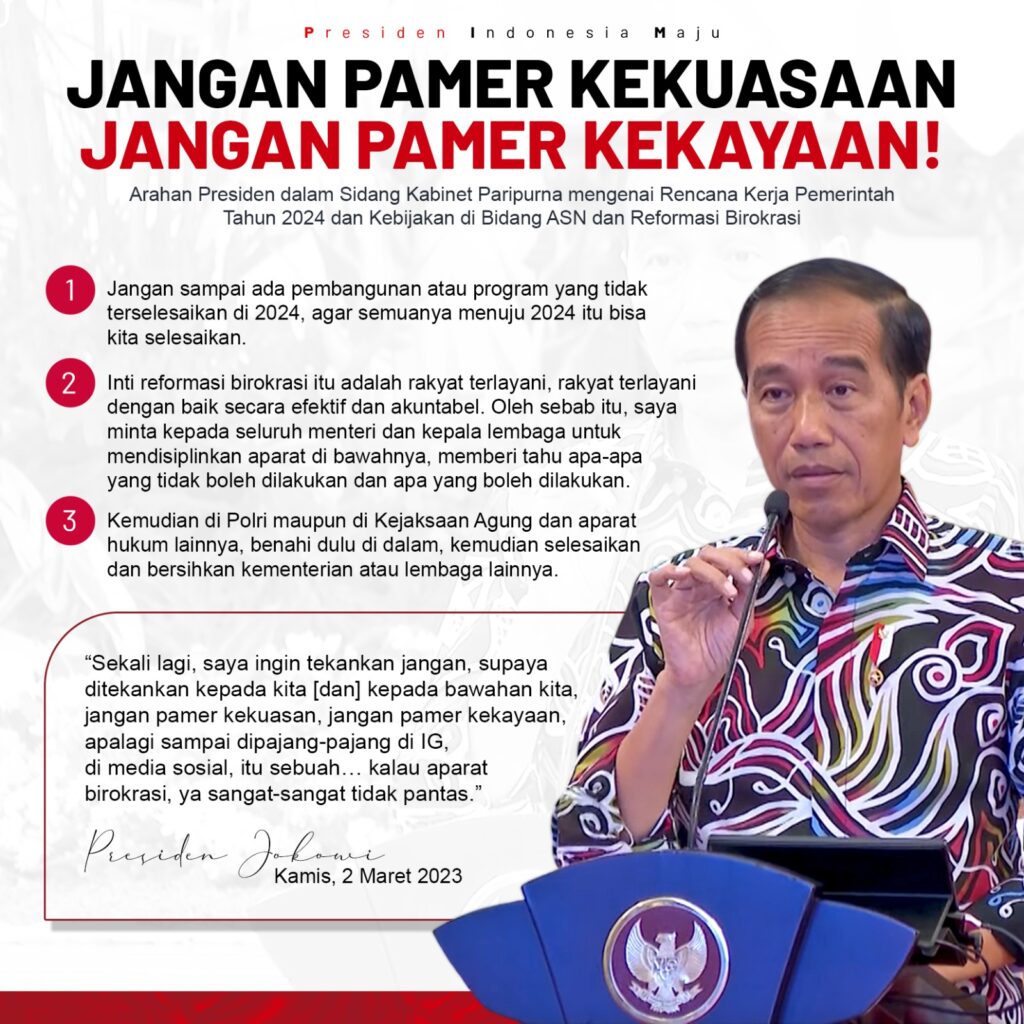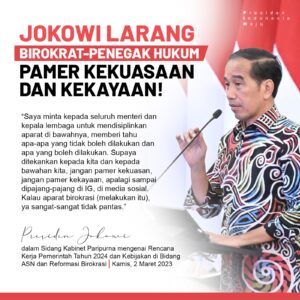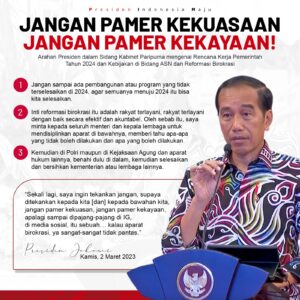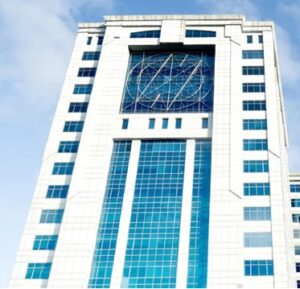
STRATGIC ASSESSMENT-Jakarta. In his remarks at the plenary cabinet meeting at the State Palace, President Jokowi called out officials for flaunting their power in the face of the public. He mentioned this when expressing his views on the case of a son of a former directorate general of taxes official who committed violence, showed off luxury cars, and was involved in a vehicle tax arrears case, disappointing the public.

He asked that institutions and ministries punish the bad actors. He urged the ministries and organizations to discipline their officials. Jokowi thus underlined that government officials must not provide bad service, especially accompanied by arrogant behavior and showing off power and wealth.

The inspector general of the Finance Ministry Awan Nurmawan Nuh announced the summons of 69 of the ministry’s employees to verify their asset ownership that the country’s asset-tracking system had deemed peculiar.
“There are 33 employees with unclear assets reported and in the 2020 assert report (LHK) for the 2021 registration, there are 36 employees who are still deemed unclear. In total, there are 69 employees,” said Awan.

The Corruption Eradication Commission (KPK) said it is not just Rafael Alun Trisambodo, the unusually rich taxman that has been in the spotlight this past week, who lied when reporting their personal assets.
KPK Deputy Chair Alexander Marwata said he had received many forwarded messages about wealthy government officials. According to Alex, KPK will look into those who are humble in their wealth reports but are actually more well-off than they are willing to admit. Alex told the public to help the KPK identify government officials with questionable wealth because it is possible that those are ill-gotten money that comes from corruption.

The Indonesian Finance Ministry’s crackdown on lavish displays of wealth by tax officials could create the momentum needed to root out perceived corruption in the government and regain public trust, analysts say. An assault allegedly perpetrated last week by the flashy son of a mid-level tax official has renewed debate about the sources of wealth of some of the country’s highest-paid civil servants, and stirred calls among netizens to boycott the filing of income tax.

Analysts noted the current case had highlighted the weak internal controls within the financial institution and oversight bodies. Dr Agus Eko Nugroho, economist at the National Research and Innovation Agency, noted that civil servants submit wealth reports to the KPK every year, but the question remains if the data is adequately scrutinised and verified.
An Indonesian court has sentenced palm oil tycoon Surya Darmadi to 15 years in prison and fined him a record 41.9 trillion rupiah (US$2.75 billion) – the first time a penalty for corruption was determined based on losses to the economy, on top of losses to the state.

The owner of Duta Palma group has been convicted of corruption, money laundering and tax evasion. He had bribed officials in Sumatra to allow his companies to grow oil palm trees on land previously declared as natural forest, and on land that his companies did not have proper permits to cultivate. The total area of land involved is more than 36,000ha.
A court in Indonesia has sentenced palm oil billionaire Surya Darmadi to 15 years in prison for his role in the biggest corruption case in the country’s history. The Jakarta Anti-Corruption Court ruled on Feb. 23 that Surya had conspired with the elected head of Indragiri Hulu district in Sumatra, Raja Thamsir Rachman, in 2004 to secure plantation permits for Surya’s company, PT Duta Palma. Surya was also found guilty on money laundering charges.
In addition, the court ordered Surya to pay 1 billion rupiah ($65,600) in fines and 2.23 trillion rupiah ($146 million) in restitution for the profit he reaped from the illegal plantations. The judges also ordered Surya to pay an additional 39.7 trillion rupiah ($2.6 billion) for losses incurred by the state.






